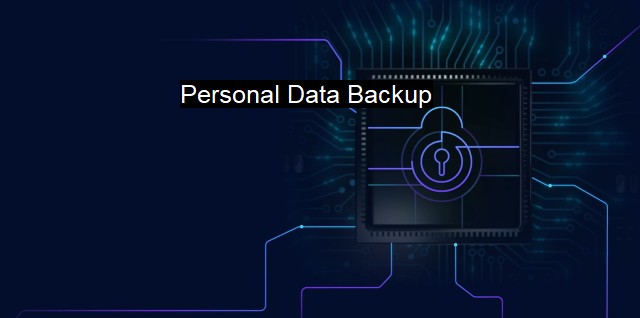What is Personal Data Backup?
The Importance of Personal Data Backup: Causes, Benefits, Best Practices, and Tips for Securing Your Digital Assets
Personal Data Backup is a term that has become commonplace in recent times, particularly with the explosion of digitized data storage and high-speed internet. It refers to the process of protecting information by making copies of important data stored on your computer or mobile devices. The necessity to create a backup for data arises from the potential for data deletion, device theft, hard drive failures, or a cyber-attack, to only name a few possible scenarios.The importance of personal data backup cannot be overstated. Cybersecurity is all about protecting our data from unlawful breaches and intrusions. Subsequently, personal data backup becomes a key player in achieving this goal since it ensures there is always a safe and secure copy of our data. It is seen as a form of insurance that limits potential damage if cybersecurity measures fail for any unforeseen reason.
One of the key elements of cybersecurity is preserving the integrity, confidentiality, and availability of data. For this, backing up personal data regularly can ensure it remains available even during mishaps or a cyber-attack. The personal data backups are then stored in other locations, possibly in an external hard drive or on a cloud service. By doing this, even if your computer is compromised, the stored data can still be safe elsewhere and easily recoverable.
Today, virulent malware like ransomware attacks are rampant. These attack systems by encrypting files and demanding money in return for unlocking them. On the one hand, a robust antivirus solution helps prevent these assaults. On the other hand, having a personal data backup is equally crucial. In case the antivirus defenses are breached and data gets encrypted, a ready backup could help restore the system to its pre-infected state.
The intricacies of viruses are increasingly challenging to decipher. Long past are days where the sole purpose of viruses was to cripple a uniquely targeted system. The modern digital lifestyle intensifies this risk with our social media profiles, emails, bank transactions, and thereby invaluable personal and professional data becoming targets. Today, the circuit in cyberattacks may not even show symptoms until long after the viruses dock on our systems. Hence, to resort to an antivirus as the only line of defense would be uncomprehensive. Herein, an updated and strategic plan B in the form of a personal data backup comes to our rescue.
Backup schemes are not one-size-fits-all, as the data to be secured could vary depending on the individual or the business. It is essential to audit digital assets and personal data, prioritizing what is critical and needs heightened attention. All pertinent information, including personal photos, vital documents, apps, and media collections, should generally be included in a secure backup plan.
Modern solutions also enable backing personal data automatically at regular intervals. Schedules could be a daily, weekly, or even setup during minimal activity periods to not hinder active usage. With continuous backups, in case of cyber threats breached, the data loss would be negligible with a solution ready to bounce back.
Personal data backup plays an instrumental role in cybersecurity. It improves resilience towards cyber threats and mitigates potential impacts of data loss. While antivirus solutions are paramount to thwart cyber-attacks, the significance of data backup goes hand-in-hand. It is seen less as an option and more as a mandate for maintaining the robustness and reliability of your digital universe. Personal data backup safeguards your digital life from potential threats, making itself an uncompromised companion in today’s digitally connected world. Hence, always staying prepared with an updated backup can foster a peace of mind.

Personal Data Backup FAQs
What is personal data backup?
Personal data backup is the process of creating a duplicate copy of important digital files and storing them in a separate location. This is done as a precautionary measure in case the original files become lost, damaged, or stolen.Why is personal data backup important for cybersecurity?
Personal data backup is important for cybersecurity because it can protect your valuable data from being lost or stolen due to hacking, malware, or other cyber attacks. Having a backup of your data ensures that you can quickly recover and restore your files without having to pay a ransom or suffer other consequences from a cyber attack.What types of personal data should I backup?
You should backup any personal data that is irreplaceable or would cause significant stress if it were lost. This may include family photos, important documents such as tax records, and any data related to your finances or other personal information.How often should I backup my personal data?
The frequency of your personal data backups will depend on how often you update your files and how much data you are storing. It is recommended to backup your data at least once a week or more frequently if you have a lot of updates or changes to your files. You may also want to consider using an automated backup system to make sure you never forget to backup your data.| | A | | | B | | | C | | | D | | | E | | | F | | | G | | | H | | | I | | | J | | | K | | | L | | | M | |
| | N | | | O | | | P | | | Q | | | R | | | S | | | T | | | U | | | V | | | W | | | X | | | Y | | | Z | |
| | 1 | | | 2 | | | 3 | | | 4 | | | 7 | | | 8 | | |||||||